Masterpiece from the Silent Era turns 100 - Queenslanders experience
By JOL Admin | 24 January 2016
One of the greatest motion pictures from the silent era is celebrating its 100th anniversary this year. Intolerance was a 1916 American film directed by D.W. Griffith, who is also famously (or infamously) remembered for A Birth of a Nation (1915) which in one segment glorifies the role the Klu Klux Klan played in American history.
https://www.youtube.com/watch?v=vd6NPuhXUAo
In 2007, after conducting a poll of professionals in the film industry, the American Film Institute released its list of the best 100 American films. Intolerance (1916) was ranked at No.49; the list including 3 other films from the Silent Era (1894-1929) - Buster Keaton's The General (1926) at No.18; Charlie Chaplin's The Gold Rush (1925) at No.58 and F.W. Murnau's Sunrise: A Song of Two Humans (1927) at No.82.
When the picture was released in October of 1916 in the USA, dramatic critic for the San Francisco Chronicle Walter Anthony, who himself went on to a successful career in Hollywood as a screenwriter, said the following -
"...the most majestic and the most daring thing that has ever been recorded between the clicking of the shutters."
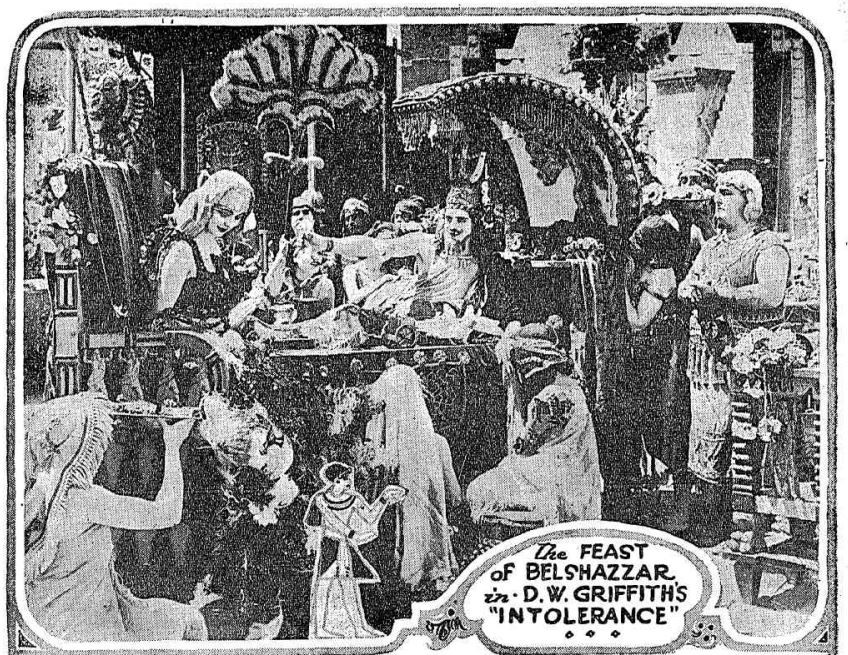
Running at over 3 hours, Intolerance weaves together 4 stories from different periods in history - Babylon in 539 BC; Judea in c.27 AD; France in 1527 and America in c.1914. The film was critically praised, especially for the elaborate and grandiose set designs during the Babylonian sequences. Despite the critical acclaim, spectacular sets, epic stories, massive budget (estimated $US47 million dollars today) and a cast of 3,000 extras, the film was a commercial failure.
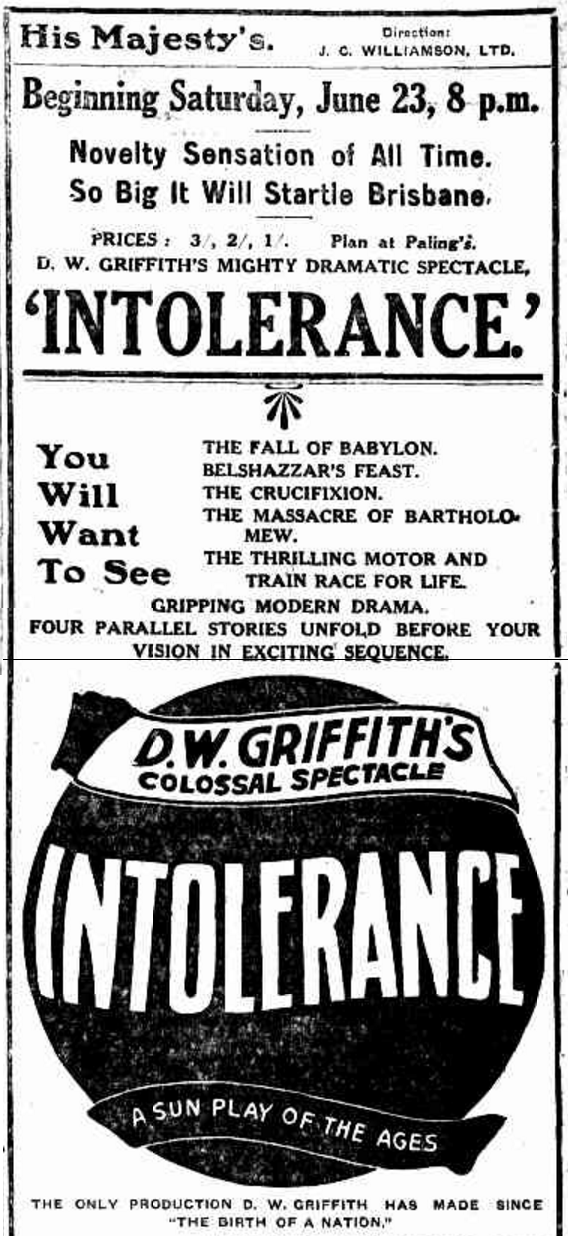
Advertisement for Intolerance published in The Truth (Brisbane), June 17, 1917
The silent film made its Queensland debut in Brisbane at His Majesty's Theatre in Brisbane on June 23, 1917 and was screened twice daily (one matinee and one evening) with the final screening on July 7. Publicity in the Courier-Mail and The Telegraph promised audiences a spectacle that should not be missed.
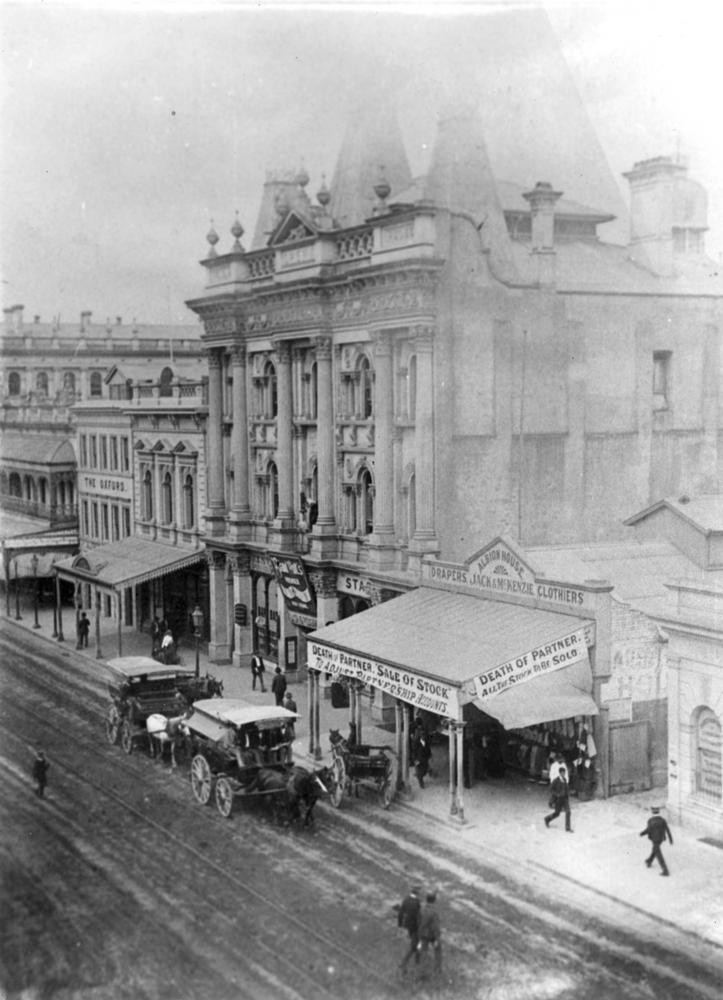
Her Imperial Majesty's Opera House, Queen Street, Brisbane ca. 1894. Re-named His Majesty's Theatre in 1901. John Oxley Library, State Library of Queensland. Neg 15773
The Telegraph newspaper stated that "expert operators, special machines and master musicians arrive in Brisbane some days ahead of the opening, so that there will be no hitch in the production of the film or the rendering of the specially composed music that accompanies the film from start to finish."
This specially composed music was performed by an orchestra of 16 musicians with the addition of two vocal numbers - My Own Wild Irish Rose and The Nile Song which would be sung by Miss Molly Wheeler. Wheeler was a talented young vocalist from Hughenden.
The opening night's screening was a success according the Brisbane Truth newspaper - "That Brisbaneites appreciate the wonders of this film was amply borne out last night, when the biggest audience that has ever witnessed the cinema unfold its tale here, showed their appreciation in no uncertain way... To miss Intolerance will be to lose something Brisbane has not seen before, and possibly will never see again...All we can say is, 'Go and see it'."

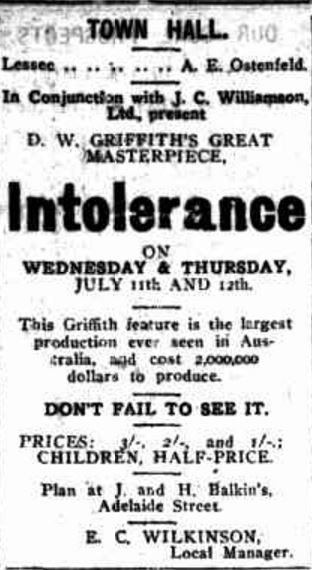
Advertisement for Intolerance, Maryborough Chronicle, July 9, 1917
After its Brisbane season had finished the picture started its tour around regional Queensland, with the first stop at Gympie on July 18, 1917, with a large audience on the opening night at the Theatre Royal. The picture also played at the Maryborough's Town Hall, Rockhampton's Princess Court Theatre, Cairns' Palace Theatre, Townsville's School of Arts, Charters Towers' Tivoli Theatre, Ipswich's Town Hall, Toowoomba's Town Hall, Warwick's Town Hall, Bundaberg's Jubilee Gardens Theatre, Childers' Gee's Hall and Blackall's Lyceum Open-Air Theatre to great success.
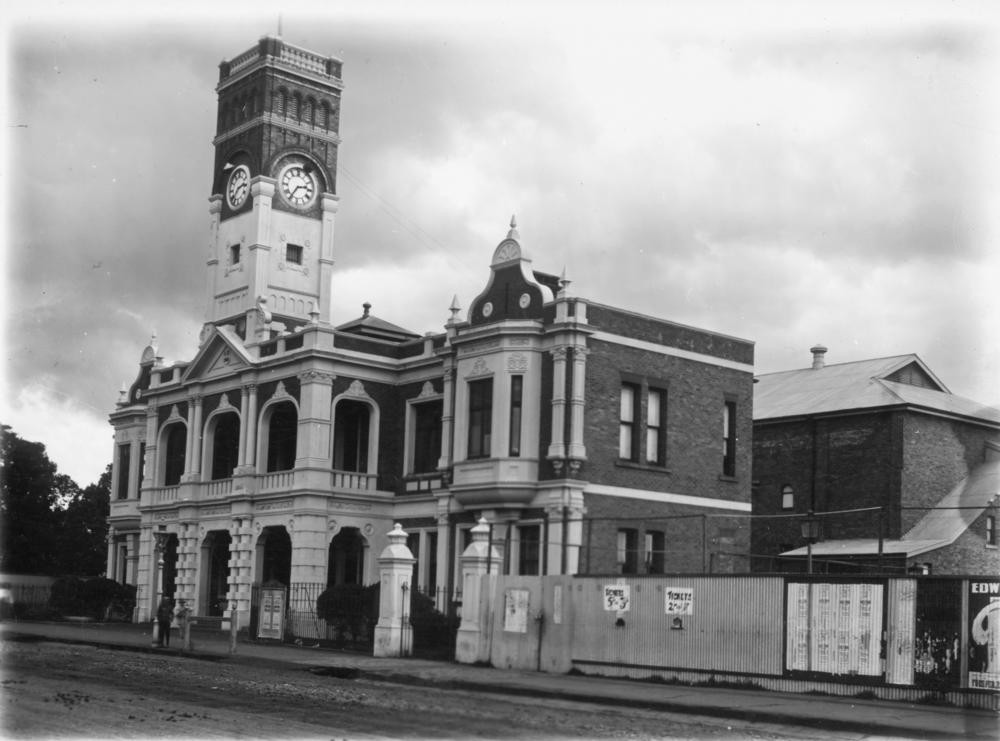
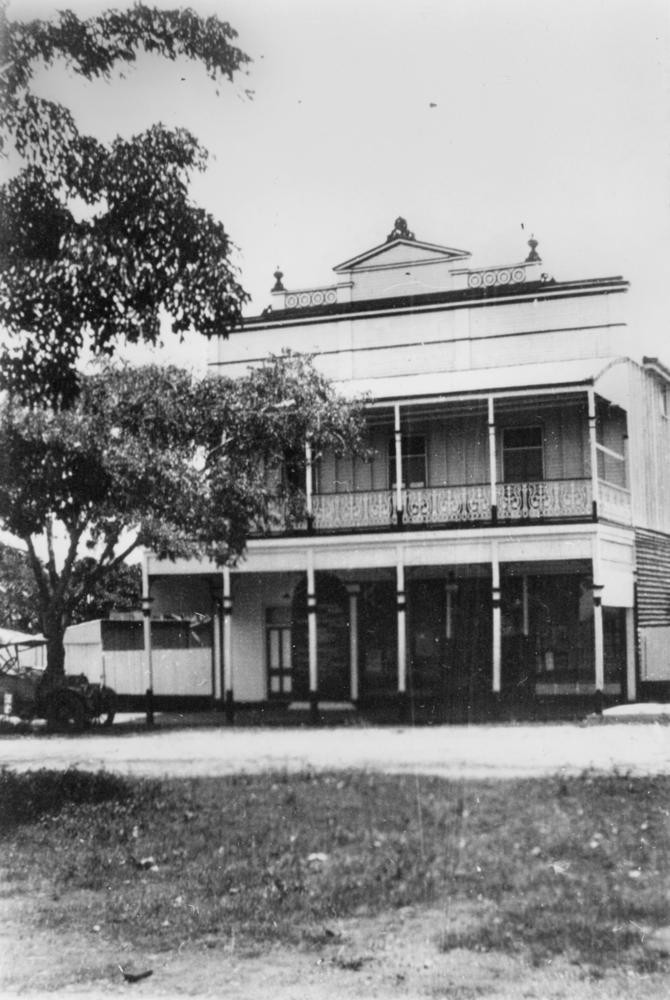
Comments
Your email address will not be published.
We welcome relevant, respectful comments.